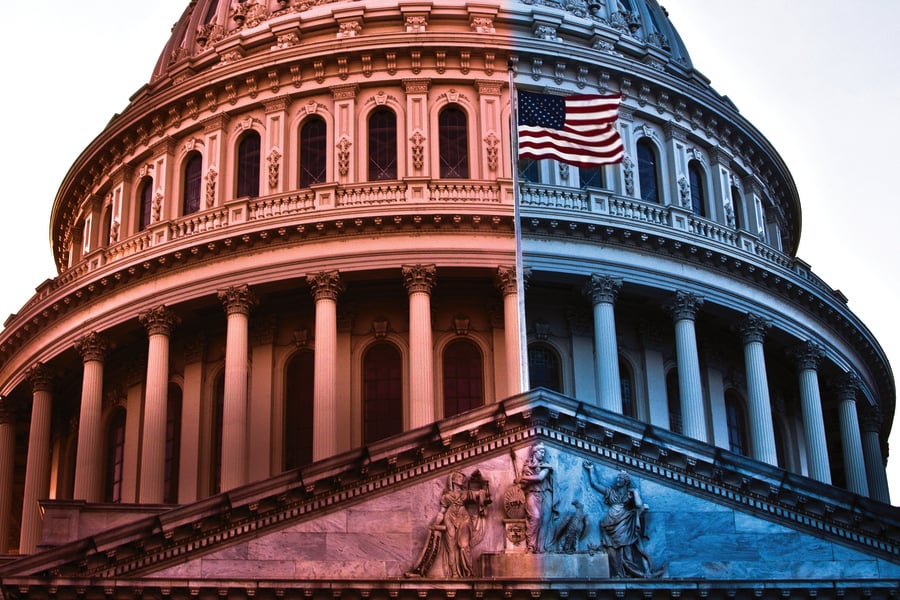

Every December, InvestmentNews looks back at the most important developments of the previous 12 months. From ETFs to ESG to TINA, we’ve got all the acronyms covered — and a whole lot more.
This year, ESG, like so many aspects of life, became a starkly partisan subject.
While the engagement that investors and asset managers showed with public companies reached an all-time high, so too did the objections to shareholders influencing the operations of the companies they own.
The year also saw major developments in legislation and regulation that affect sustainable investing, including proposals from the Securities and Exchange Commission and a long-awaited final rule from the Department of Labor.
If for nothing else, 2022 would be a landmark year for the sustainable investing world, given the Inflation Reduction Act, the largest piece of climate legislation passed in the U.S. It includes about $370 billion for investments in energy security and for addressing climate change. That could be used to help reduce greenhouse gas emissions in the U.S. by an estimated 40% in 2030 compared with levels seen in 2005.
The most significant regulations on sustainable investing came from the SEC, which proposed a rule that would require public companies to disclose their greenhouse gas emissions. Most would have to report carbon data known as Scope 1 and Scope 2 emissions, and eventually, those numbers would need to be verified by independent third parties.
And many companies would also have to measure and disclose Scope 3 emissions, which are related to the materials they use and the products they sell. That is the most contentious aspect of the proposal, as Scope 3 emissions are by far the most difficult to calculate. However, they also represent the biggest component of many businesses’ carbon footprints.
Separately, the SEC proposed two other rules designed to combat greenwashing, which would affect fund naming and marketing for advisers and fund providers. Final versions of all three rules will likely be published in 2023.
Additionally, the DOL issued its rule governing the use of ESG factors in retirement plans. Countering a rule passed late in the Trump administration, the Biden DOL moved to specifically allow ESG considerations by plan fiduciaries. However, the new rule does not necessarily require plan sponsors and advisers to incorporate ESG factors in their decisions, even while those considerations can be material.
Shareholder resolutions flooded proxy ballots, thanks largely to a change in the SEC’s stance on the ability of companies to exclude those proposals. There were more than 250 ESG-themed resolutions that went to a vote, although some asset managers were less eager to support shareholder proposals than they were in prior years. BlackRock, for example, noted that its position on ESG issues had not changed, but there were a larger number of proposals, many of which asked for more than earlier ones, and the company expected supporting fewer of them as a result.
Overall, climate change and social justice were the themes in resolutions that saw the most success, with shareholders voting in favor of proposals at companies including Apple Inc., Walt Disney Co. and Costco Wholesale Corp.
With the growing interest in ESG and more success that asset managers have had at engaging with their portfolio companies came pushback from Republicans who have all but vilified sustainable investing. Numerous states have accused big firms, namely BlackRock, of boycotting the fossil fuel industry, even as those firms are the biggest investors in the sector. Florida, for example, has moved to stop state money from being invested with ESG considerations, recently pulling $2 billion from BlackRock. Other states have similarly pulled investments from the firm, and Texas has created a blacklist of investment providers that it has threatened to stop doing business with.
To read more articles in this series:

Meanwhile, a father-son pair of advisors and ex-marines from ex-Edward Jones gives Kingsview its newest location in Arkansas.

New Vanguard and FINRA data show Americans increasingly vulnerable to financial shocks, with hardship withdrawals and cash-outs reaching a new high.

Many people have already continued working past their planned retirement date

A new analysis finds long-running fiscal woes coupled with impacts from the One Big Beautiful Bill Act stand to erode the major pillar for retirement income planning.

Caz Craffy, whom the Department of Justice hit with a 12-year prison term last year for defrauding grieving military families, has been officially exiled from the securities agency.
Orion's Tom Wilson on delivering coordinated, high-touch service in a world where returns alone no longer set you apart.
Barely a decade old, registered index-linked annuities have quickly surged in popularity, thanks to their unique blend of protection and growth potential—an appealing option for investors looking to chart a steadier course through today's choppy market waters, says Myles Lambert, Brighthouse Financial.
